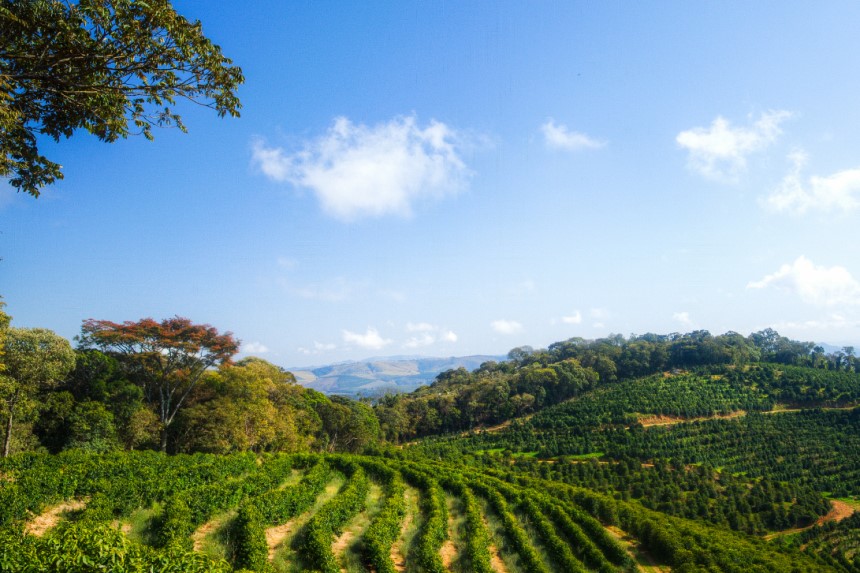

Coffee farming is a significant part of environmental sustainability. However, it is also one of the leading causes of biodiversity decline and deforestation in multiple tropical countries, including America, across the equatorial belt all the way to Australasia. According to Business Wire Trusted Source Coffee Market Report 2021 - Global $100+ Billion Market Growth, Trends, COVID-19 Impacts, and Forecasts to 2026 - ResearchAndMarkets.com | Business Wire The global coffee market was valued at USD 102.02 billion in 2020, and it is projected to reach a CAGR of 4.28% during the forecast period of 2021-2026. www.businesswire.com , the global coffee demand is expected to grow at a 4.28% CAGR until 2026. This increase in demand is further worsening the negative impact of coffee production.
According to a report by the UK government Trusted Source Final Report - The Economics of Biodiversity: The Dasgupta Review The Dasgupta Review is an independent, global review on the Economics of Biodiversity led by Professor Sir Partha Dasgupta (Frank Ramsey Professor Emeritus, University of Cambridge). www.gov.uk dubbed Economics of Biodiversity: The Dasgupta Review, the current relationship that humans have with nature needs to change fundamentally. This report highlights that we can live sustainably by ensuring that the demands we have don’t exceed the resources that nature provides. For instance, it would be wiser for farmers to change how they grow the crops when it comes to coffee farming. This way, instead of tearing down natural habitats and cutting down trees, farmers focus on biodiversity, preserving forests, sustaining beneficial ecosystems, improving degraded landscapes, and fixing carbon, ultimately resulting in sustainable living.
The main challenge that researchers have been facing when trying to quantify the positive and negative impacts of coffee farming on nature is the lack of reliable research products and data. However, in 2014, the Royal Botanic Gardens started a research project with Hand-Roasted Coffee, the UK roasting company Union, in Ethiopia (the Yayu Coffee Forest Biosphere reserve). This project was aimed at demystifying the relationship and synergy between biodiversity and coffee farming, with more emphasis on the coffee supply/value chain.
 A Quick Overview of Ethiopian Coffee
A Quick Overview of Ethiopian CoffeeBased on the Global News Wire Trusted Source Global $465.9 Billion Coffee Market (Value, Volume) Dublin, Feb. 09, 2021 (GLOBE NEWSWIRE) — The “Global Coffee Market (Value, Volume) – Analysis by Coffee Beans, Distribution Channel, by Region, by… www.globenewswire.com data, the coffee industry is a multi-billion sector, currently worth $465.9 billion. In Ethiopia, this industry is responsible for 25% of its export revenue and is a significant portion of the income for around 15 million citizens. This country primarily produces Coffee Arabica, thanks to the surrounding humid and tropical forest, and so does the neighboring country South Sudan. These forests, which have been turned into livelihood and conservation reserves, are usually in a natural or semi-natural state. They play a significant role in the surrounding communities & those that live in them and are the home to multiple animals, plants, and fungi.
The Yayu Coffee Forest reserve, in particular, is well known for its genetic diversity and high quantities of wild arabica plantations. At its core, there are thousands of wild vegetation and coffee plants that remain undisturbed and intact for the most part. This is due to farmers limiting their coffee plantations to the reserve transition zones and forest edges.
This coffee farming sustains over 90% of the locals and is responsible for about 70% of the total cash inflows.
Specialty coffee is highly-priced, and its demand has been steadily going over the past 2 years. This is largely due to its high quality and the implementation of the best farming, harvesting & processing practices. According to the above study, farmers that sold about 25% of their harvest as specialty coffee experienced a 30% increase in their annual income. This then means that if the farmers sold all their produce as specialty coffee, they would experience a 120% income increase.
This would, however, require maximum operating efficiency. The best part is that this increase would be possible without increasing harmful inputs such as herbicides, pesticides & fertilizer, or the need for more farming land.
According to the report, deforestation in the Yayu area as a result of coffee farming was minimal, which is impressive. However, it also highlighted that forest coffee farming still has negative implications on the environment, but they’re significantly less compared to other types of coffee farming. The report further highlighted that if consumers were made aware of the negative and positive impacts of their purchasing decisions, they could help reduce the impact of coffee farming on the natural environment by reducing their levels of coffee consumption.





